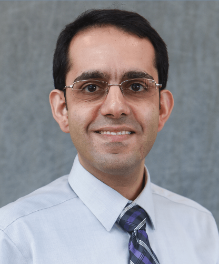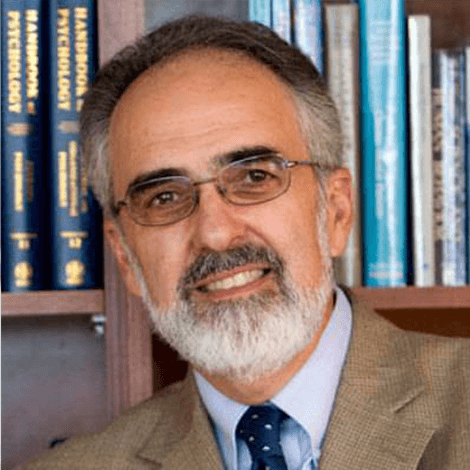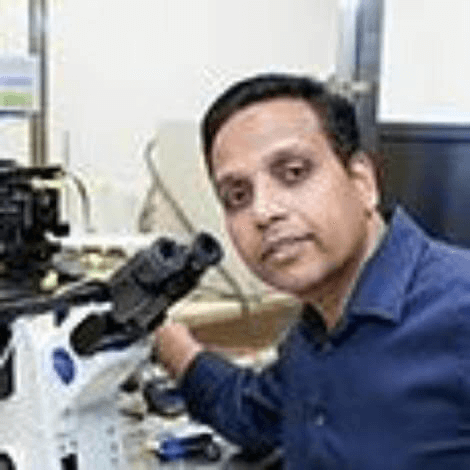-
Food Science Faculty Research

ANDRADE, Juan - Ph.D. Purdue University: Research interests are focused on agriculture and food and nutrition security programs, food fortification, low-cost, point-of-use diagnostic tools for assessment, quality of food aid products, and service, experiential learning education programs. 
FARZAD, Razieh –Ph.D. Virginia Polytechnic Institute: Food Science and aquaculture research for sustainable food systems. This work supports the production of sustainable, safe, and high-quality seafood through aquaculture practices, mainly Recirculating Aquaculture Systems (RAS). Research areas include novel aquafeed production using cellular agriculture, aquaculture engineering, aquaponic production of seafood and produce, dietary interventions for value-added seafood production, and seafood nutrition. 
GOODRICH-SCHNEIDER, Renée –Ph.D. University of Florida: Fruit juice biochemistry, microbiology and stability; novel juice processing methods; food safety issues for citrus products; bioproduction/biomodification of fruit flavors and value-added products. 
GU, Liwei –Ph.D. Jiangnan University (China): Chemistry and health benefits of phytonutrients; in vitro and in vivo antioxidant capacities; composition and absorption of phytochemicals and alteration by food processing; metabolism of phytonutrients and efficacy in preventing chronic diseases. 
MACINTOSH, Andrew J. –Ph.D. Dalhousie University (Canada): Application of food engineering principles to fermentations, including optimization of pharmaceutical production, assessment of novel substrates, waste valorization and examining phenomenon within the brewing industry. 
MONTAZERI, Naim - Ph.D. Louisiana State University: Foodborne pathogens; virology; food safety; microbial mitigation strategies (food, water, and contact surface); risk assessment; bacteriophages and their biotechnological applications. 
SCHNEIDER, Keith –Ph.D. University of Florida: Activities pertinent to assuring quality, safety,and development in the retail sector of Florida. Specific work with pathogen reduction and food safety in seafood, meat, poultry, fruits and produce. 
SIMS, Charles –Ph.D. University of Arkansas: Fruit and vegetable processing; wine and juice processing; sensory and quality evaluation. 
WITRICK, Thompson–Ph.D. Virginia Polytechnic Institute: Focuses on altering the flavor and aroma profile of fermented beverages by changing a single ingredient or fermentation parameters. Research includes the impact of water chemistry on Brettanomyces bruxellensis and beer flavor profiles, and the effect of geographical growing regions on ingredient quality in beer. Also works with other fermented products like kombucha, kefir, yogurt, and wine. 
ZHANG, Boce –Ph.D. University of Maryland: Research interests focus on food safety and food microbiology. His research integrates transcriptomics, machine learning, nanotechnology, and biointerface science to study the mechanisms of pathogen persistence. -
Food Science Faculty Located at Citrus Research and Education Center, Lake Alfred

DANYLUK, Michelle –Ph.D. University of California, Davis: Research focuses on microbial food safety and quality, emphasizing the microbiology of fruit juices, fresh fruits and vegetables and tree nuts. Extension Specialist for citrus processing issues -work with processors and packers to enhance quality, safety and value of processed citrus products. 
WANG, Yu –Ph. D. Rutgers University: Flavor Chemistry, identification of aroma and taste compounds, instrumental analysis, flavor stability, molecular sensory and flavor modulation and Natural Product Chemistry –discovery of novel bioactive compounds, usage of citrus by-products for flavor modulation and health benefits. -
Nutritional Sciences Faculty Research | Located in FSHN Department

ANDRADE, Jeanette - Ph.D. University of Illinois, Champaign-Urbana: Developing educational materials to promote dietary behavioral changes among low-income adults; educational techniques to advance health professionals counseling abilities 
ANDRADE, Juan - Ph.D. Purdue University: Research interests are focused on agriculturea nd food and nutrition security programs, food fortification, low-cost, point-of-use diagnostic tools for assessment, quality of food aid products and service, experiential learning education programs. 
BEST, Cora - Ph.D. Cornell University: Nutritional influences on kidney and musculoskeletal health. Emphasis on vitamin D and mineral metabolism. Clinical research and metabolic research with stable isotopes. 
CHENG, Zhiyong - Ph.D. Peking University: molecular mechanism of metabolic derangements in obesity and type 2 diabetes; epigenetic mechanism of metabolic changes; develop mechanism-based strategies to prevent or treat the metabolic disorders. 
COLLINS, James F. –Ph.D. Vanderbilt University: Nutritional genomics and biochemistry. Major focus on intestinal nutrient absorption and molecular and genetic regulation of iron and copper absorption during iron-deficiency; utilization of quantitative real-time PCR, western blotting, and methods to analyze transcriptional regulation of gene expression. 
DAHL, Wendy J. –Ph.D. University of Saskatchewan: Development and sensory evaluation of foods fortified with isolated fiber sources, efficacy and effectiveness of functional fiber fortification, and prebiotic fiber and probiotic therapy in GI disease. 
GU, Liwei -Ph.D. Jiangnan University (China): Chemistry and health benefits of phytonutrients; in vitro and in vivo antioxidant capacities; composition and absorption of phytochemicals and alteration by food processing; metabolism of phytonutrients and efficacy in preventing chronic diseases. 
KNUTSON, Mitchell –Ph.D. University of California, Berkeley: Molecular mechanisms of iron transport and homeostasis. Emphasis on iron overload and identifying and characterizing candidate therapeutic targets for treating/managing disorders of iron and metal metabolism. Transgenic and knockout mouse models. 
LANGKAMP-HENKEN, Bobbi –Ph.D. University of Tennessee, Memphis: Nutrient modulation of immune function, pre and probiotic research in humans. 
LIU, Bin –Ph.D. Ohio State University: Molecular mechanisms underlying calcium-dependent cardiac dysfunctions and developing novel mechanism-based therapeutics. 
MATHEWS, Anne –Ph.D. University of Pittsburgh: Energy metabolism and exercise in Type 2 diabetes; clinical research management. 
TAFT, Diana - Ph.D. University of Cinncinati: Research interests include the development of the term infant microbiome and infant acquisition of gut commensals that carry antimicrobial resistance genes and pathobionts. -
Nutritional Sciences Faculty Research | Located Outside of FSHN Department

ADESOGAN, Adegbola (Department of Animal Sciences)- Ph.D. University of Reading, UK: Evaluation of methods of enhancing the preservation and safety of animal feeds with microbial cultures and antifungal chemicals; improving the digestion of animal feeds and hydrolysis of biomass with fibrolytic enzymes and chemicals; using underexploited medicinal plants to improve animal growth, health and welfare. 
ANTON, Stephen (Department of Clinical and Health Psychology) - Ph.D. University of Florida: The role that lifestyle factors have in promoting healthy aging and reducing age-related disease conditions including obesity, cardiovascular disease, and metabolic syndrome. 
ARTHINGTON, John (Department of Animal Sciences)- Ph.D. Kansas State University: Identify methods for quantifying stress in animals and evaluating nutritional management opportunities for decreasing the detrimental results of stress; dietary copper and the acute phase response to inflammatory stress; management systems that optimize stressful events such as vaccination, weaning, and transportation that avoid the nutrient drain associated with prolonged inflammatory distress.

HILL, Richard (Department of Small Animal Clinical Sciences)- Ph.D. University of Florida: Gastrointestinal physiology; colonic physiology; clinical nutrition; energy requirements; nutrition of greyhounds; antioxidants and vitamins.

LEMAS, Dominick (Department of Health Outcomes & Biomedical Informatics)- Ph.D. University of Alaska Fairbanks: Understanding the fetal origins of pediatric obesity with a specific interest in the functional implications of gut microflora and the critical host-microbe interactions that regulate maternal-infant metabolism.
.jpg)
LEEUWENBURGH, Christiaan (Department of Physiology and Aging) - Ph.D. University of Illinois, Urbana-Champaign, IL: Free radical biology, inflammation, disease, and aging; investigation of cellular phenomena, such as apoptosis (cell death) that may be linked to mitochondrial aging. 
MATHEWS, Clayton (Department of Pathology, Immunology, Professor & Laboratory Medicine)- Ph.D. University of Georgia: Mitochondrial reactive oxygen species and genetics of Type 1 diabetes.
.jpg)
NEU, Josef (Department of Pediatrics)- Ph.D. University of Wisconsin, Madison, WI : Pediatric nutrition, role of glutamine in intestinal health and development.

PERRI, Michael G. (Department of Clinical and Health Psychology)- Ph.D. University of Missouri: Columbia: Obesity and weight management.

ROWLAND, Neil E. (Department of Psychology) - Genetic and neurochemical controls of food intake in rodents, especially in relation to obesity; behavioral economic analysis of how food demand is affected by price and implications for body weight.

SHELNUTT, Karla (Department of Family, Youth, & Community Sciences) - Ph.D. University of Florida: Development, training, and evaluation of educational programs for the prevention and management of childhood and adolescent overweight and obesity as well as nutrition through the lifecycle; research focused on preventing weight gain in college-aged students on the University of Florida campus. 
STACPOOLE, Peter W. (Department of Medicine)- Ph.D. University of California: M.D. Vanderbilt University: Patient-oriented nutrition research focusing on two areas: in vivo stable isotope kinetic modeling to investigate influences of diet, gender and genetics of 1-carbon metabolism and congenital defects in mitochondrial oxidative phosphorylation using basic and clinical research approaches.

VIDYASAGAR, Sadasivan (Department of Radiation Oncology)- Ph.D. Manipal University: Identifying electrolyte and nutrient transport alterations in the small bowel during disease conditions, including acute and chronic diarrhea and radiation-induced and chemotherapy-induced gastrointestinal (GI) toxicity.

VULPE, Christopher (Department of Physiological Sciences)- Ph.D., M.D., University of California: Ecotoxicology- toxicology of chemicals and nanomaterials in aquatic ecosystems; use of genome-wide approaches to understand how genetic variations influence iron homeostasis; biology of mammalian ferroxidases with a focus on Hephaestin.
-
Affiliated Faculty

BOWSER, Ellen - Ellen Bowser is both a registered dietitian and registered nurse. She received her MS in Food Science and Human Nutrition from the University of Florida in 1989. She has worked as the Faculty Nutritionist with the UF Pediatric Pulmonary Center (UF PPC) since 1990, a Maternal and Child Health Bureau Interdisciplinary Leadership Training Grant. Ellen is Co-Director of the UF PPC and as such she coordinates the grant activities in addition to the training of students and interns (both dietetics and other health professionals), the provision of continuing education, consultation and technical assistance. She has served as Lead Analyst/Consultant for the Academy of Nutrition and Dietetics’ Evidence Analysis Project and has worked on numerous projects including Chronic Obstructive Pulmonary Disease, Gestational Diabetes and Cystic Fibrosis. She was awarded “Outstanding Member of Year” by the Pediatric Nutrition Practice Group of the Academy of Nutrition and Dietetics in 2005 and is a Fellow of the Academy of Nutrition and Dietetics. She was awarded “Outstanding Dietitian of the Year” in 2019 by the Florida Academy of Nutrition and Dietetics. 
SIMONNE, Amy –Dr. Simonne is a professor and extension food safety specialist. She joined the FYCS Department in 2000. Her appointments are extension (60%), research (35%), and teaching (5%). She is actively involved with both graduate and undergraduate teaching programs.
Faculty Research
